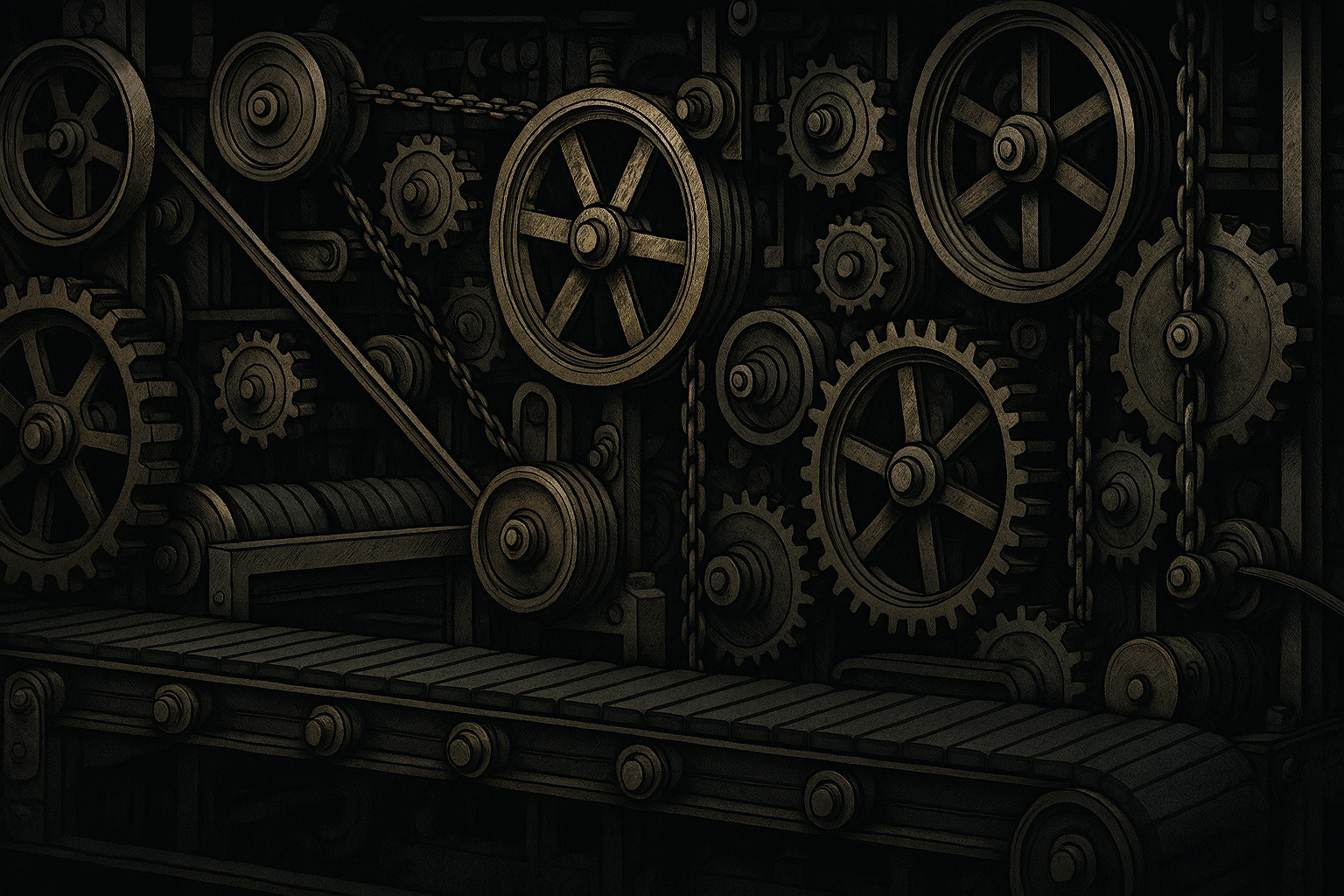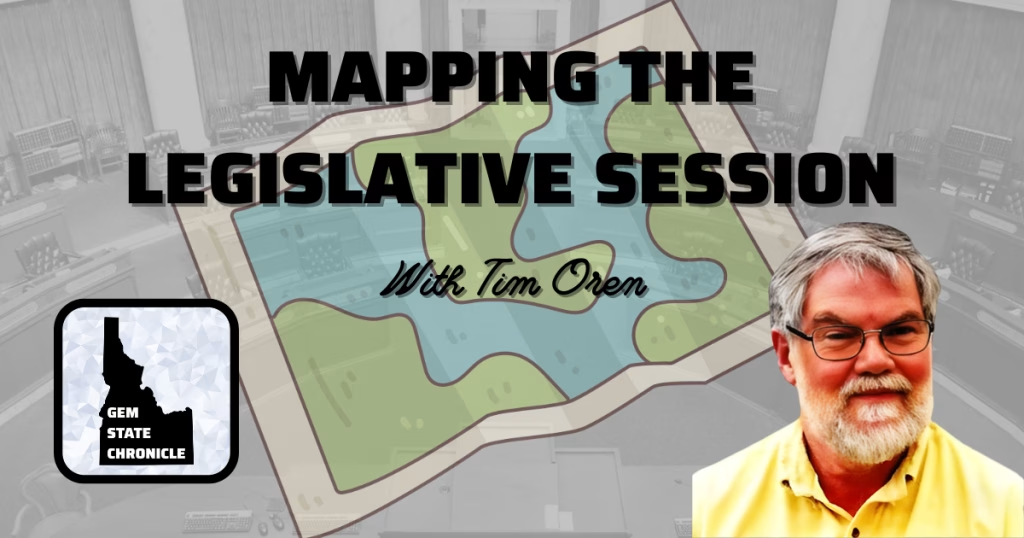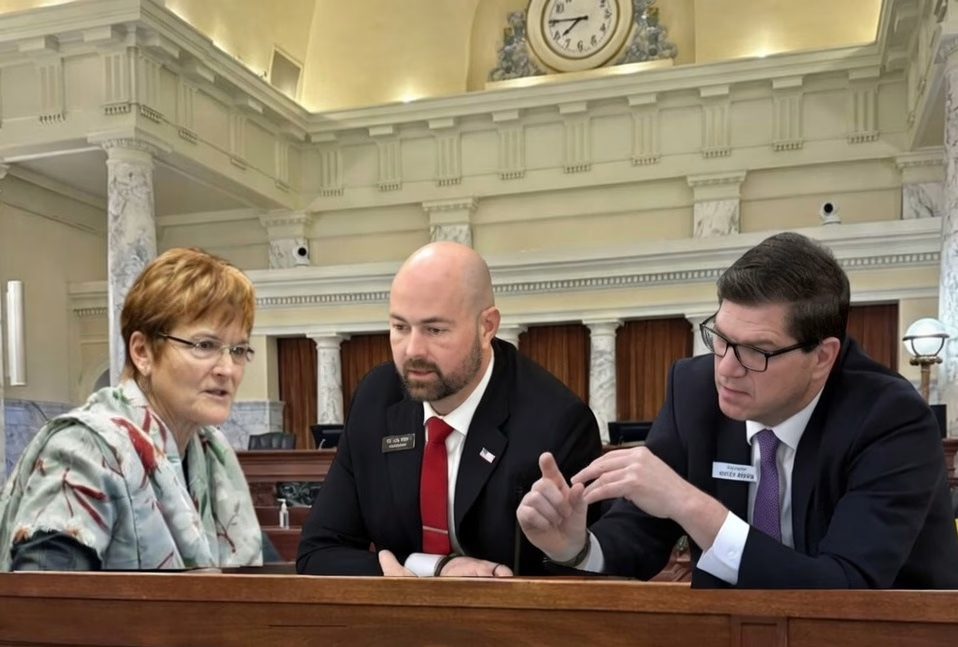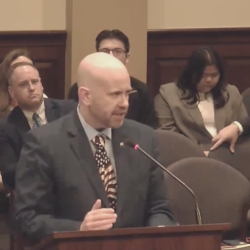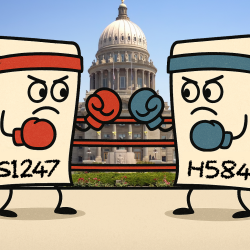Last week, Rep. Lance Clow announced he would step down from the House of Representatives at the end of this month, before the 2026 legislative session begins. He had already said he would not seek reelection next year. Clow was first elected in 2012 after a long career in Twin Falls city government.
On Wednesday evening, the Legislative District 25 Republican Central Committee voted to send three names to Gov. Brad Little, who will select one to serve the remainder of Clow’s term. Twin Falls County Commissioner Don Hall was the committee’s first choice, followed by Lucy Wills and Char Alexander.
The governor will almost certainly pick Hall.
Why? Hall filed a treasurer appointment form with the Secretary of State’s office last August to run for the seat, meaning he was already preparing to succeed Clow. This resignation and appointment simply accelerate the process, allowing Hall to run next May with a full legislative session already under his belt.
This approach has an obvious benefit: it establishes Hall as the incumbent. On the other hand, potential challengers will now have a voting record to scrutinize.
I don’t know much about Don Hall, so don’t take this as criticism of him personally. Today I’m looking at how the game is played.
I explained last week that Idaho Supreme Court justices not only rarely face challengers for reelection, but often resign in the middle of their terms, allowing the governor to appoint replacements from a list selected by the Judicial Council. Once appointed, justices typically run unopposed in the next election.
The same dynamic can operate in the legislative branch. A longtime incumbent looking to protect the issues they championed can step down halfway through their final term. If they’re on good terms with the governor, it works out even better, because they might have assurances that their preferred successor will be chosen.
I’ve said before that Gov. Little is part of a well-oiled political machine. He benefited from this process—appointed to the Idaho Senate by Gov. Dirk Kempthorne in 2001 to fill a vacancy, then easily winning reelection the next year. When Jim Risch was elected to the U.S. Senate in 2008, vacating the lieutenant governor’s office, Gov. Butch Otter appointed Little to that spot, and he easily won reelection in 2010.
Little went on to win a three-way race for governor in 2018.
Saying this is how the machine works isn’t accusing anyone of doing anything illegal or even necessarily immoral. It’s often frustrating for those of us outside the machine because we want to see our champions win in a fair fight. But if you were in power and believed you were acting in your state’s best interests, wouldn’t you use every advantage available within the law?
If you’re a professional football coach, you look for every edge before Sunday’s showdown. You watch film, study matchups, and tailor your plan to accentuate your strengths and exploit your opponent’s weaknesses. If you know an opposing cornerback has a bad knee, you attack it.
Machine politics is no different. It’s no use crying about it—we need to learn to play the game rather than hate the players.
Two years ago, I uncovered how Gov. Little was funneling money into a PAC attacking three conservative senators in Canyon County. Sens. Brian Lenney and Tammy Nichols weathered the storm and won reelection, while Chris Trakel lost. It’s frustrating to face this big-money machine, and it’s disingenuous for Little to send out fundraising letters about fighting Democrats while using that money to target conservative Republicans, but from his perspective it’s still rational. He wants a Legislature aligned with his agenda—just as we want one committed to conservative principles.
Many on the right are likewise frustrated with President Donald Trump’s recent endorsements. In 2022, he went out on some limbs, including endorsing then-Lt. Gov. Janice McGeachin against Gov. Little. This year, he’s mostly sticking with incumbents. He has endorsed Little, Sen. Jim Risch, and Rep. Mike Simpson, and he’s campaigning for Sen. Lindsey Graham in South Carolina against a conservative challenger. At the same time, he’s opposing figures such as Reps. Thomas Massie of Kentucky and Marjorie Taylor Greene of Georgia.
It’s undeniable that Massie and Taylor Greene have more conservative voting records than Simpson or Graham. So why is Trump backing the latter and opposing the former? Because politics is a team sport, and winning teams function like well-oiled machines.
Back to the football analogy: most head coaches would rather have a reliable role player who does his job every week than a superstar with a fragile ego. Donald Trump wants people who will support his agenda—such as last summer’s One Big Beautiful Bill—rather than those who might sabotage it, even if they claim to be acting on principle. What good is a star running back if he ignores the coach and insists he knows better?
Trump has concluded that Massie and Taylor Greene are liabilities to his agenda, while Graham and Simpson will help carry it out. You can complain about it, but that’s the reality.
Principled stands get headlines, but political machines win. If conservatives actually want to implement policy and change society, we need to learn to play the game. Instead of pulling each other down like crabs in a bucket, or chasing the thrill of being the lone voice against the world, we have to work together. Our time, treasure, and energy must be used efficiently—on races where they can actually make a difference, not quixotic crusades. We should identify who is on our team and support them publicly, even if we have occasional private disagreements.
That means we can’t be torpedoing former allies over one or two issues. Define your red lines. Can you work with fellow conservatives who differ on the grocery tax, water infrastructure, or geoengineering? If every issue is a red line, then you won’t be able to work with anyone, and you’ll remain a lone voice in the wilderness. That’s fine if that’s what you want, but it won’t accomplish anything.
Notice that Gov. Little doesn’t publicly trash people on his team. He’s not on social media picking fights. Even his attempts to undermine Nichols, Lenney, and Trakel last election were done through a PAC, twice or even three times removed from him personally. Meanwhile, too many principled conservatives spend their time attacking each other. That’s not how you build a well-oiled machine.
Building a strong political machine takes time. Democrats in the mid-1800s coalesced around President Andrew Jackson, and at first their opponents floundered. Men like John Quincy Adams, Henry Clay, and Daniel Webster often struggled to work together despite their shared opposition to Jackson. Two terms under Jackson and one under his successor, Martin Van Buren, eventually forged that opposition into its own machine—one that ultimately birthed the Republican Party, which then dominated national politics for more than half a century.
The Idaho political machine around our current governor has been operating for a long time, while its opposition is fractured in a dozen different ways. There is enough energy and capital to build a counter-machine, but it will never happen as long as we keep tearing each other apart. Can Idaho conservatives build a coalition that rivals the governor’s machine? Or will we let it keep on trucking while we fight over the crumbs?
Gem State Chronicle is a reader-supported publication. To receive new posts and support my work, consider becoming a free or paid subscriber.
About Brian Almon
Brian Almon is the Editor of the Gem State Chronicle. He also serves as Chairman of the District 14 Republican Party and is a trustee of the Eagle Public Library Board. He lives with his wife and five children in Eagle.


